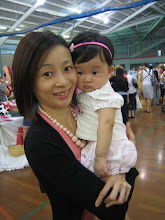It has often been said that if someone could bottle the smell of a new born baby they would make a fortune. There are few people who can resist that new born scent. But have you ever wondered why? In fact, your child's unique scrummy aroma is probably as much down to human evolution as it is to your choice of baby cream.
As world famous zoologist Desmond Morris put it : "Evolution has armed the infant with an irresistible appeal that ensures his parents care for him, feed him and keep him clean and warm.
From smell to sight, sound and touch, there are a number of ways in which your new arrival is said to be 'hard-wired' to ensure that all important bonding process, which is so vital to his sense of security and development.
Of course, there are many other ways in which you can encourage bonding. Babies welcome the sight and sound of their parents from a very early age, having quickly learnt that they are a source of food, warmth and loving care. Singing, speaking and reading aloud to your baby are all ways in which you can reinforce that familiarity, and you will usually be reward with a beautiful gummy smile.
Moreover, numerous studies have shown that touch is of vital importance to a newborn's well-being. Babies who have a lot of skin-to-skin contact appear to thrive better and cry less.
It is important, though, to remember that bonding is an ongoing process that allow you as a parent to nurture your baby's sense of self and relationships over time.
Did you know ....
Mothers and babies can identify each other by their unique smell soon after birth. In fact, this smell is what enables a newborn baby to locate and attach to his mother's breast so quickly after birth.
Mothers (even those awakened from a deep sleep) can identify the sound of their baby's cry. In those first few sleep-deprived days, many first-time mothers are amazed at their ability to distinguish their baby's cries from those of other babies in the maternity ward.
A baby's umbilical cord (about 50cm) is just the right length to allow a newborn baby to be held by his mother while still attached to the placenta.
In response to a forefinger pressed into the palm of his hand, a baby's natural reflex is to curl his fingers to tightly around that finger that the grasp could support his entire weight.
Scientists have recently discovered that activity within a particular part of the brain soars within one-seventh of a second after seeing the face of an infant. This almost instantaneously positive reaction does not occur in response to the face of an adult.
Source: Dodds, C (2009), Coles Baby : Winter 2009, Coles Supermarket Australia Pty Ltd
25 May 2009
Subscribe to:
Post Comments (Atom)


0 comments on "Power of the Sense"
Post a Comment